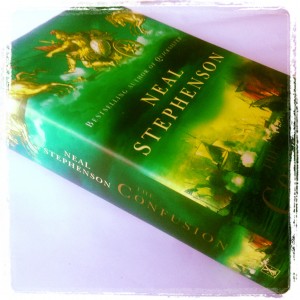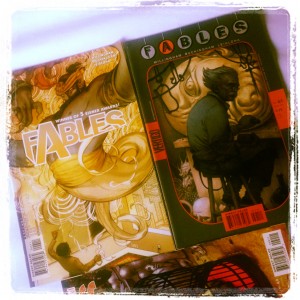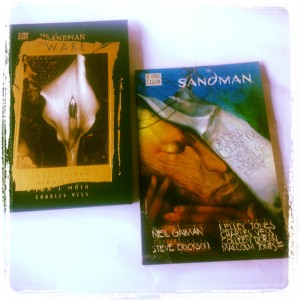Terry Pratchett, creator of the wonderful Discworld series. It would be easy and highly satisfying to ramble on about his humour and his wonderful world but I don’t think that that’s what makes his books so much fun to read. The thing that always stands out and indeed what I think makes him so successful is his grasp of the human condition (and indeed that of the werewolf as well). His characters are so beautifully human, both extreme and ordinary; over the top yet modest and flawed.
Terry creates people in his book, people that you root for and want desperately to succeed. Yet these are people who can do both wonderful and the most outrageously stupid things, things that are instantly recognisable in the people that you live with, work with and see on the bus. His characters aren’t in any way perfect but are loveable in many instances, detestable when necessary and inherently human in all cases. Even when they’re a werewolf.
This humanity, surrounded by the magic of the Discworld, grounds his stories in an entirely different sort of magic. To borrow an overused and outstandingly cheesy phrase, reading his books is for me, like spending time with some good friends, laughing at their inevitable misfortune but feeling safe in the knowledge that it’ll come right in the end. Or at least that it will end just like it would in real life. Only with magic. And werewolves




